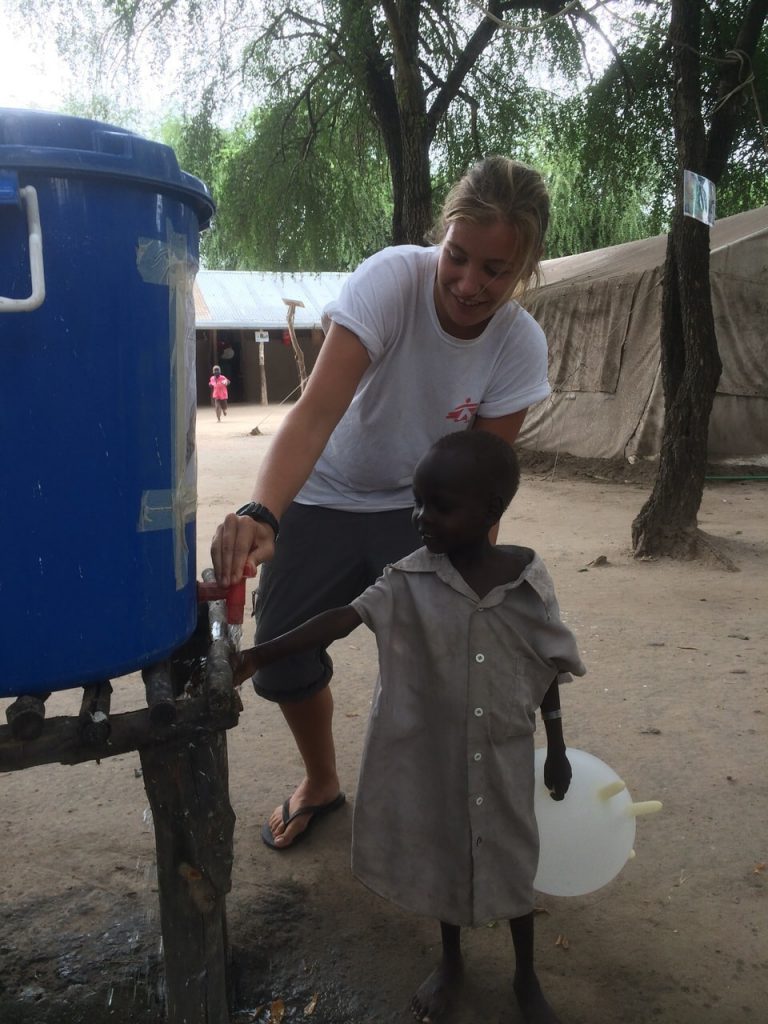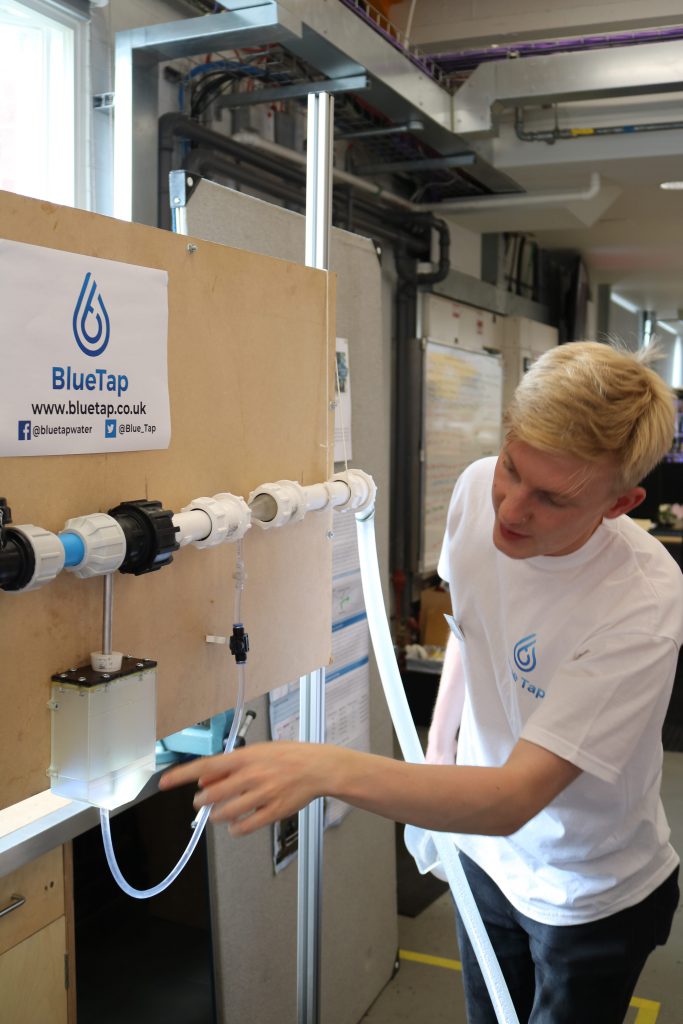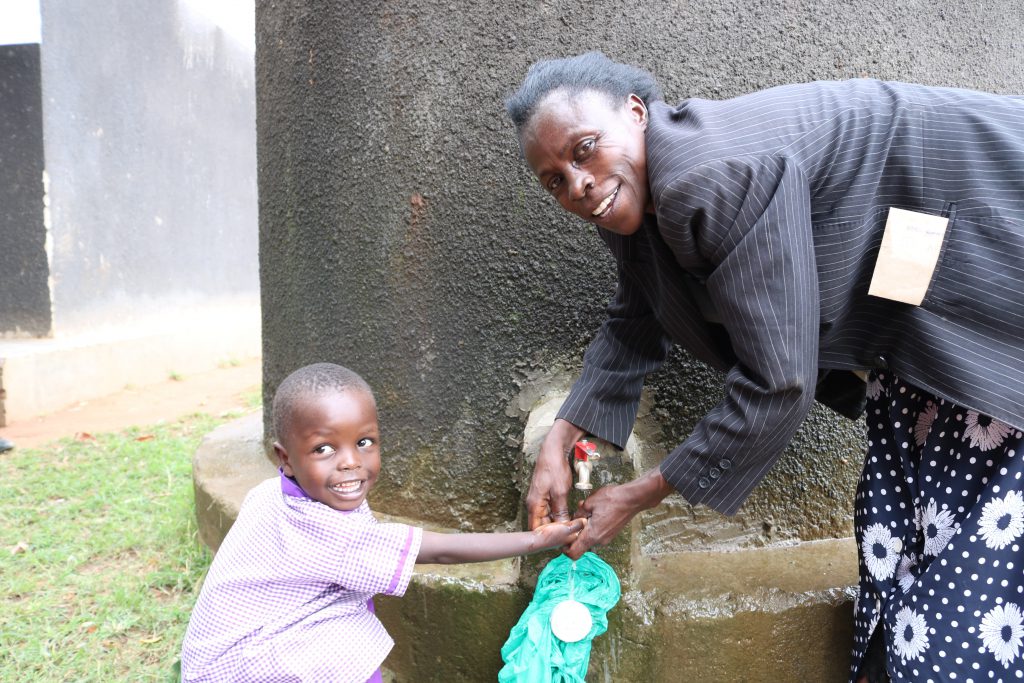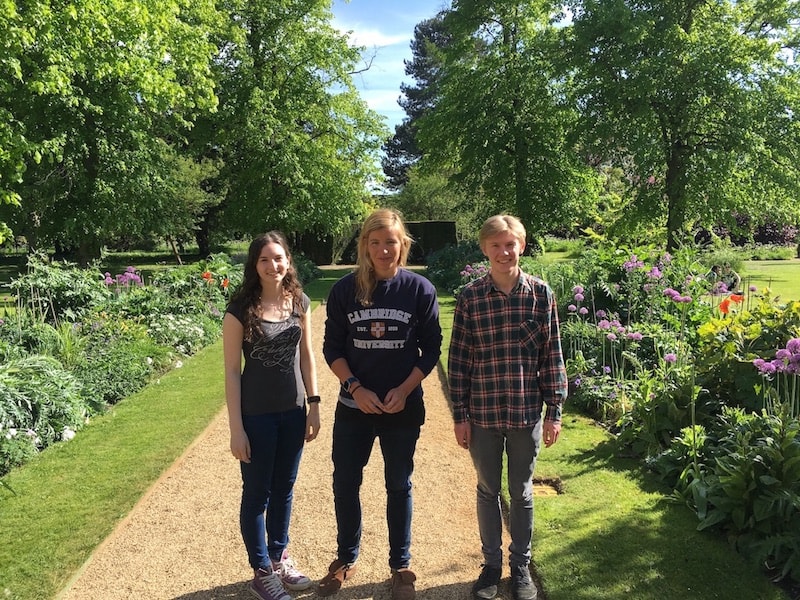Blue Tap: How three student entrepreneurs have created a business that taps into clean water for the world
Cambridge students Francesca, Rebecca and Tom founded Blue Tap, a new business developing a water purification technology that can change the way the world drinks water. I met up with the founding team to learn more about their impressive journey as student entrepreneurs.
By Rute Costa
2.1 billion people globally cannot trust the water they drink at home. Since 2016, Cambridge students Francesca, Rebecca and Tom have set out to reduce that alarming number. They founded Blue Tap, a social enterprise developing a water purification technology that can change the way the world drinks water. I met up with the founding team to learn more about their impressive journey as student entrepreneurs.
Beginnings in Mexico City
“The idea started in 2013, a long time ago”, says Francesca, who goes by Ces. The founder was volunteering for Engineers Without Borders and working with a charity in Mexico City when the extent of the water crisis really hit her. There are structural issues surrounding water harvesting in Mexico, Ces explains, with people “getting water by putting it in big trucks and driving it uphill”, and making mistakes when trying to treat their harvested rainwater. A recurrent error was the misdosing of chlorine, to which Ces responded by building a “rudimentary” automatic chlorine injector out of nuts and bolts. Then she moved to Africa to work with Doctors Without Borders and encountered a water crisis, again. Water purification technologies were sold at over £1,000 in a country where GDP per capita is less than £600 per year. Surely, there had to be a better solution.

A Cambridge dream team
When Ces arrived to Cambridge to start her PhD in Resilience to Climate Change she encountered two elements that rocketed her water purification idea: firstly, a skilled team, and secondly, the necessary technology to develop it. “Within the first two weeks of term I met Tom and Becky, and by chance they happened to be the perfect team. All the things I’m terrible at they’re both really good at, so it works very well”, she tells me. “We met through a student society called Impact through Innovation Cambridge – they match problems in the developing world with teams to figure out solutions”, Becky adds. Tom confesses that it wasn’t just chance that brought them together though: “I kind of lobbied to be on the team. The idea was right up my street so when I heard about it, I made sure I was involved”. Tom is the technical-guru, whilst Becky deals with all things marketing and operations, and Ces focuses on growth, partnerships and development.
A simple technology
The team has been hard at work, focusing full-time on the project now that university has paused for the summer months. “I’ve been in the lab all morning, Becky has been there as well, but my role is to test the prototypes in the lab, thinking about how we’re going to make the product robust and easily manufacturable”, Tom explains. They are perfecting a prototype before they can settle on a design and mass-produce it. Access to 3D printers has made this process a lot easier and more cost-effective: “If we want to change something [in the prototype], Tom can print off a new version and we test it within 24 hours”, Ces says. Before 3D printers, product-based businesses had to invest significant amounts of their budget to get their prototypes produced before perfecting them – it’s a massive step towards progress.
Water can become drinkable if the right amount of chlorine is added to it, and that is the basic principle of Blue Tap’s water purification technology. “But how does it actually work?”, I ask. To my surprise, this is not a question the team gets very often, and they are happy to answer it. “No one ever asks us that and I think it’s so important!”, says Ces. Tom begins to explain in minute technical detail how it all works, but Becky comes to the rescue with the simplified version – “I feel like I’ve explained this to enough children”, she says jokingly. “Our device fits into the current household pipes. It is basically a piece of pipe that gets narrower. As the water goes through that pipe, it speeds up. So, if you imagine putting your finger in a hose, the water comes out faster because the pipe is narrower. That creates a pressure drop because of a scientific principle called Bernoulli’s principle. The difference in pressure means that the chlorine, which is in aqueous form and stored in a container screwed into the setup, just gets sucked in at a rate that’s dependent on the flowing water. That means you can always put the right ratio of chlorine to make it drinkable”.
“It’s designed to be simple”, Ces adds. “The idea is you just go to a house, cut the pipe, put in our invention and after 2 to 3 hours it should just work automatically. There is this stigma associated with chlorine: people say it tastes horrible but that’s because they are putting too much in. Chlorine is good because it disinfects the water, but you have to use the right amount, which is what our technology does”.

Field trips and target audiences
When Blue Tap say they want to change the way the world consumes water, they mean it. Their current focus is to address the millions of households in the developing world that have access to water but have poor means and methods of purifying it. “We’re looking to sell the product for about 50 dollars. We have two markets: the lower income side where people are boiling water that will likely get infected again, and spending no money on it, and the higher income side, where people are spending a huge proportion of their income on bottles of water or other types of filtration”, Ces explains. At the moment, Blue Tap is not targeting the poorer, rural populations whose access to water is precarious – though the team have some ideas “floating around” to tackle those issues in the future.
The team is preparing a field trip to Uganda this summer, where they will be testing the prototype, studying how to best implement and distribute it. Once this research and feedback has been applied to both device and business plan, Becky tells me, they “will be looking for product designers and manufacturers to get [the technology] into a box”. “From my perspective, that will be the big step”, Tom adds, explaining that the next round of funding will be going towards that transition. In the future, they are looking to expand to countries like Nepal and India, both with huge demand for an affordable water purification technology.

The perks of being a student entrepreneur
Becky, Ces and Tom started and developed a social enterprise alongside intensive full-time academic work. But how did they manage?
“The biggest challenge is time”, says Becky. “You are doing everything part-time so there is never enough time in the day to do everything you want to do”. The benefits, however, seem to largely outweigh the challenges. Becky enjoys the “freedom to go after what you want to change and go about it in the way you think is best”. Tom has also found career freedom in the pursuit of Blue Tap, now that he has just graduated: “It has really opened my eyes to what you can do with engineering, and how many options there are to use your knowledge to do something interesting or worthwhile”.
The huge volume of free advice the team has access to at the University is a significant benefit. “Becky gets most of the business advice, Tom gets all the technical advice, and I’m in the department for sustainable development so I get a lot of the development advice”, says Ces. She adds: “Cambridge is phenomenal for its support for businesses. It’s got a good reputation because so many great startups have come out of it, so they want to encourage entrepreneurship”. Tom explains that the technical support in and outside of the lab has been equally invaluable – “People are really keen to help you if you have a good idea”.
The University has also been hugely helpful in keeping costs to a minimum. Not only have Blue Tap been the recipients of entrepreneurial grants and awards, they have also been allowed to use the lab and research facilities for free. “If we had tried to do this outside of the university environment, our costs would have been so much higher, close to a million pounds if we had to rent a lab”, says Ces. “I think everyone should at least try while they’re at university”, the founder adds. “You’ve got this great support network, you can experiment with not much consequence or chance – so what if it doesn’t work? You still have your degree”.

As young entrepreneurs, one of the most valuable lessons they learnt was “not to sell [their] dream short”. “You’ve got to embrace [your mission] and say ‘yes we want to change the way people access water, all over the world’, and not be shy with your figures and your ambitions because people want to get behind you and they want to make it happen”. This young team certainly is making it happen.
Photo credits: Blue Tap
